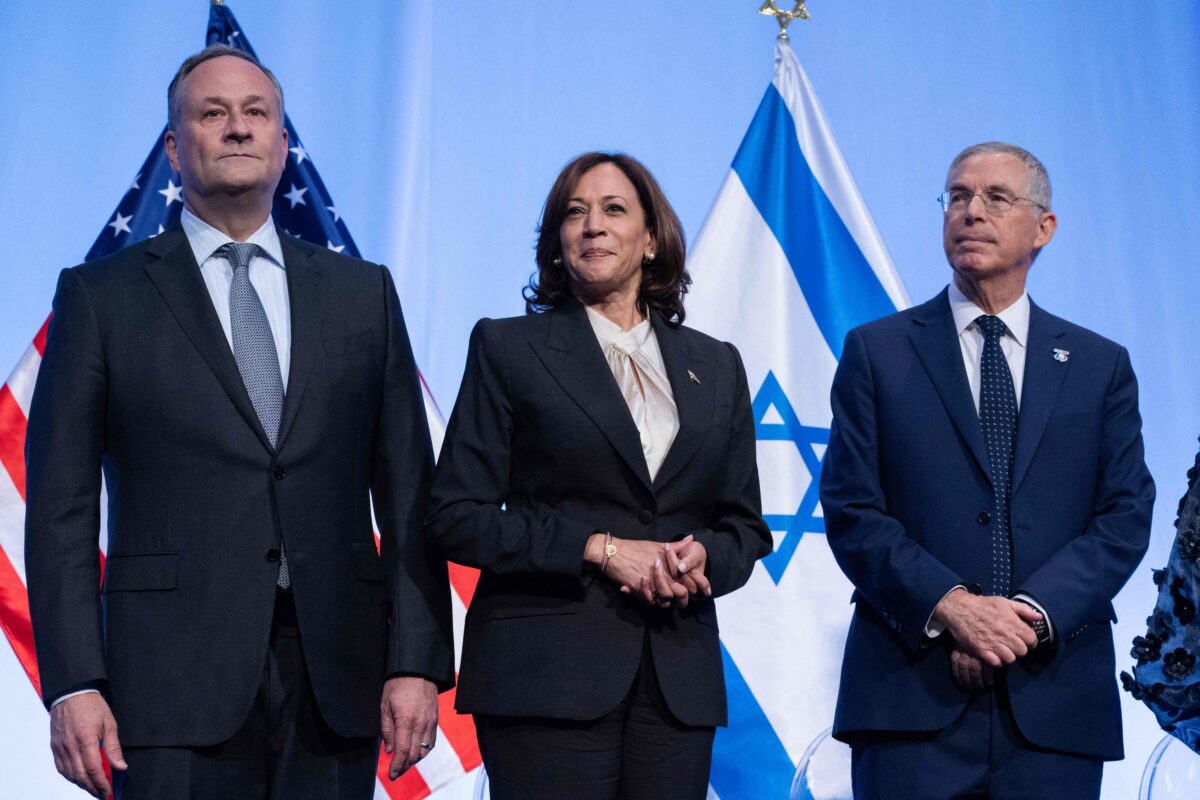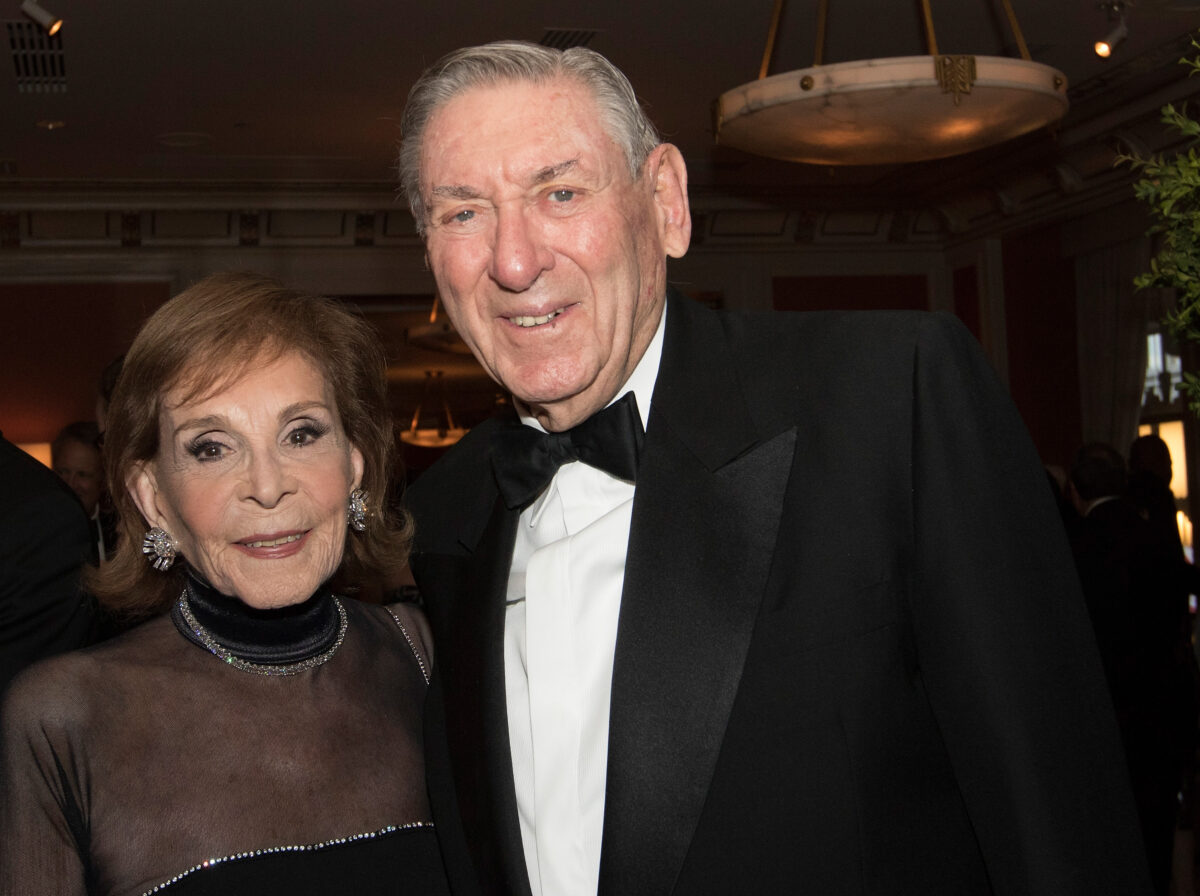Your Daily Phil: United Hatzalah fundraising gala in N.Y. + Upgrading nonprofits’ tech
Good Wednesday morning!
In today’s edition of Your Daily Phil, we profile the Senser Foundation’s efforts to upgrade nonprofits’ technology, and feature op-eds from Shira Ruderman and Jonathan S. Kessler. We’ll start with last night’s United Hatzalah gala in New York.
Five hundred dollars; that’s all it takes to save a life, Mark Gerson, United Hatzalah’s international chairman of the board, explained to an audience of nearly 1,000 people on Tuesday night at the organization’s fourth annual gala in New York, reports Jewish Insider’s Tori Bergel for eJewishPhilanthropy.
Based on a series of quick calculations, Gerson concluded, taking into account the cost of training each of United Hatzalah’s medics, the organization’s total number of volunteers and the lives saved each year: $500 equals one life saved. It seemed a reasonable return on investment for gala attendees, who later in the night would donate tens to hundreds of thousands of dollars on new equipment for the organization (there were also a handful of donations that reached the million-dollar mark, including that of keynote speaker, New England Patriots owner Robert Kraft, and his wife, Dana).
By the time dessert was served, members of the audience had pledged upwards of $5 million to the organization, according to a rolling tally that was displayed on a monitor during the event. (The organization did not immediately release a final total.) But while the event’s goal may have been fundraising, the theme of the evening was unity.
Kraft, who has spent tens of millions of dollars on efforts to combat antisemitism, spoke about the hatred permeating today’s society and the ways communities must act to stifle it. “United Hatzalah is also facing a world of fracture, divisiveness and hate, but it brings out the best in a complicated world, one person at a time, one relationship at a time,” Kraft said. “Because when someone is in harm’s way, within 90 seconds there’s a United Hatzalah ambulance. Jews save the lives of Arabs, Arabs save the lives of Jews, secular people save the lives of the religious and religious people save the lives of [the] secular.”
High tech


In 2021, Meredith Jacobs, the CEO for Jewish Women International, needed help to combat an uptick in domestic violence during the pandemic, so she decided to present a webinar. “I said, ‘We need funding to get this work done. Please reach out to me if you’re interested,” she told Jay Deitcher for eJewishPhilanthropy. “Within minutes, I had an email from Naomi Senser.” Naomi and her husband, Jerry Senser, represent the Senser Foundation, based in Highland Park, Ill. Not only did they provide funds for JWI’s webinar program, but in 2022 they included the group in their newest initiative, a 10-to-12 month program using the Lean Digital Transformation Model, which assesses an organization’s technological needs and helps it implement the best computer programs to help it meet its goals.
Infrastructure projects: Donors often shy away from investing in “infrastructure” for nonprofits, preferring instead to fund new initiatives and programs. But to the Sensers, improving organizations’ technological capabilities serves as a force multiplier, making them more capable of achieving all of their goals. Jacobs didn’t realize how much JWI needed the Lean Digital Transformation Model, she said. It allowed her organization to stride forward into an increasingly virtual world.
Tech upgrade: Since launching the partnership, 19 organizations have participated, including JWI, the Organization for the Resolution of Agunot, Lissan, Out for Change, Haifa Rape Crisis Center, the Ark and Shalom Task Force. Each organization accepted to the program was supported differently based on their needs. Many wanted to improve communication between employees who were working remotely. Some needed support with crowdfunding. Others needed improved websites.
Basic necessity: Jacobs recognized that funding infrastructure is “not sexy,” she said, but making sure your technology and programs are up to date is “almost the digital equivalent of heating and light. You can go farther, faster, if your tech is where it needs to be.”
Finding solutions
Leveraging philanthropy as a strategic resource for problem-solving


“On the surface, the prospect of entering the fray in efforts to resolve a politically related controversy would make a philanthropist feel uncomfortable. Yet in practice, philanthropy can play an important role in identifying and implementing solutions to today’s highest-profile crises,” writes Shira Ruderman, executive director of the Ruderman Family Foundation, in an opinion piece for eJewishPhilanthropy.
Fresh ideas: “At its best, the philanthropic sector is nimble, data-driven and strategic. It can bring fresh ideas to the table. Philanthropy makes a tremendous impact in a variety of fields where governments can fall short, from natural disaster recovery, to education, research and more.”
Philanthropists should sit around the table: “Unlike the public sector, private philanthropy is not defined by rigid and bureaucratic dynamics. Simply put, private philanthropists can find solutions in ways that public agencies cannot… This is precisely why governments and other entities would be well-served inviting individual philanthropists and philanthropic organizations to participate in the problem-solving process.”
Teachable moment
Israel today offers a lesson in democracy


“For many American Jews, a trip to Israel is a way to recharge their Jewish batteries, to connect with their ancestral homeland and to deepen their appreciation of the country’s history, culture and people. Individuals, families and community missions should also add to their itineraries encounters with Israel’s remarkable pro-democracy organizers and activists,” writes Jonathan S. Kessler, founder and CEO of Heart of a Nation, in an opinion piece for eJewishPhilanthropy.
To enhance your visit, engage with locals: “For those lucky enough to be traveling to Israel this year, an upcoming visit can also be a once-in-a-lifetime opportunity to engage and encourage, not only those protecting Israel’s population centers, but those defending Israel’s democratic institutions as well.”
Worthy Reads
Fighting in the Culture War: In The New Yorker, Emma Green goes deep inside the rise and fall of the Foundation Against Intolerance & Racism (FAIR), a group founded in 2021 to fight what it saw as political correctness run amok, but which quickly fell to mismanagement and infighting. “[Co-founder Bion] Bartning told me that he thought the battle over FAIR’s future was ultimately driven by the ideological conflict that had dogged the organization from its beginning: even among people who agree that the American left has become overly orthodox, there are big disagreements about the best way to take on that problem… [Co-founder Bari] Weiss has her regrets… But she thinks that she did what was necessary, both in founding FAIR and in trying to save it. ‘I believed the country desperately needed an organization that defended civil liberties and equality under the law in this moment,’ she said. ‘I still think it does.’” [NewYorker]
A Cab Driver Tells Him: In The New York Times, longtime Middle East columnist Thomas Friedman discusses the goings-on in both Saudi Arabia and Israel, both of which he says are in the midst of internal struggles for their future. “This journey was unlike anything I’d ever experienced in a region that has long been my second home, and it allowed me to grasp something quite remarkable: how onetime enemies and rivals across the Middle East are on the cusp of becoming so much more interconnected and interdependent than ever before. It’s creating previously unthinkable partnerships, as well as huge internal stresses, as people in the neighborhood are trying to figure out just how modern, secular, open, entwined — and democratic — they want to be. No two countries exemplify this moment better than America’s two most important Middle East allies, Israel and Saudi Arabia… The relationship between religious authorities and the state — as well as the very legal, social and economic rules of the game — in both Saudi Arabia and Israel has never been more up for grabs since each country’s founding.” [NYTimes]
Around the Web
The Oregon Jewish Museum and Center for Holocaust in Portland will reopen on Sunday, following a four-month closure…
The heads of three major French Jewish organizations – CRIF, the Consistoire Centrale and FSJU – refused to meet with Israeli Finance Minister Bezalel Smotrich as he made an official visit to the country, sending lower-level representatives in their place…
Mitch Linefsky, 20, became the 100,000th Birthright Israel participant to join the Gift of Life Marrow Registry, joining the directory of those who can be called upon to donate bone marrow or blood stem cells to people with leukemia, lymphoma and other blood-related diseases…
A new Pew Research study found that Jews are the religious group that is both most likely to only attend in-person prayer services (as opposed to virtual ones) and also the least likely to attend prayer services at all…
The nonprofit MyZuzah, which was founded in 2017 by the Mayberg Foundation to provide free “kosher, fair-trade mezuzahs” to Jewish homes around the world for free, announced that it distributed its 10,000th mezuzah this week…
The Jewish Fund, a Detroit-based grant-making organization, donated $236,000 to purchase 142 defibrillators for 30 Jewish institutions across the city…
The government of Kazakhstan organized a meeting of Christian, Muslim, Jewish and other spiritual leaders in Jerusalem yesterday to promote interfaith dialogue and peace…
Pic of the Day


Vice President Kamala Harris and her husband, Second Gentleman Doug Emhoff (left), stand with Israeli Ambassador to the U.S. Michael Herzog onstage at Israel’s 75th Independence Day Reception last night, which was hosted by the Israeli Embassy at the National Building Museum in Washington, D.C.
Birthdays


Chicago- and Aspen-based businessman and philanthropist with large stakes in Maytag, Hilton Hotels, the New York Yankees and the Chicago Bulls, Lester Crown…
Rehoboth Beach, Del., resident, Dennis B. Berlin… Former five-term Democratic congressman from California, he now serves as counsel in the Century City office of Gibson, Dunn & Crutcher, Mel Levine… Professor of linguistics at Georgetown University, and author of 25 books, Deborah Tannen… Epidemiologist, toxicologist and author of three books about environmental hazards, Devra Davis… Deputy secretary of state of the U.S., Wendy Ruth Sherman… Senior advisor in the Office of Inspector General at the U.S. State Department, Hillel Weinberg… President of Shenkar design and engineering college in Israel, he is a grandson of former Israeli PM Levi Eshkol, Sheizaf Rafaeli… Member of the U.S. House of Representatives (D-PA), Susan Ellis Wild… Former vice president of the United States, Mike Pence… Jerusalem resident, Deborah Lee Renert… U.S. district judge for the Southern District of New York, Jesse Matthew Furman… U.S. Sen. Ben Ray Luján (D-NM)… Brooklyn rapper better known by his stage name Necro, Ron Raphael Braunstein… One-half of the Arab-Jewish electronic music duo Chromeo, David “Dave 1” Macklovitch… Israeli actress, singer and pianist, Ania Bukstein… Director of voice, creativity and culture at the Nathan Cummings Foundation, Isaac Luria… Editor of The New York Review of Books, Emily S. Greenhouse… Actress and model, Emily Ratajkowski… Canadian ice hockey forward, currently playing with Mountfield HK in the Czech Extraliga, Ethan Werek… Andrea Gonzales…








